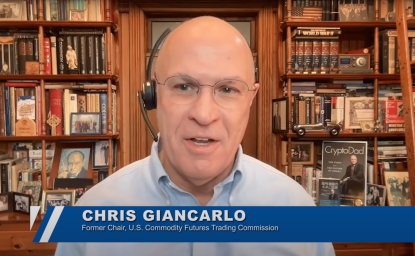In an exercise in which I participated in Boston years ago, the teacher who organized the event raised the possibility of Tolstoy and Dostoyevsky collaborating. The question he asked the audience was: Will it be "war and punishment” or “crime and peace?" The purpose of the exercise was to force the participants to think “outside the box” and to look for solutions other than the conventional ones in each one’s affairs. These days of earthquakes made me remember that adventure and observe the government in a different way.
The earthquake that destroyed countless communities in Oaxaca and Chiapas showed a competent, fit, and responsive government. Three decades after the terrible earthquake of 1985, which sank the administration of that time and sowed the seeds of rupture within the PRI and thus the birth of the movement that would lead to the candidacy of Cuauhtémoc Cárdenas and his eventual triumph in the Federal District, it is quite clear that the administrations, from then on, learned the lesson and the risks involved. The same competence has been shown in Mexico City, after the deadly events of September 19. In fact, it is astonishing to see the president of the last few weeks willing to communicate with the population, explain the facts, and try to convince the citizenry. Will there be political consequences of this change?
This current presidential term would have been very different had President Peña Nieto developed a public presence like the one he’s shown in the last few days. In contrast to the past years, the president of today is clearly in charge, visible, and even convincing. Perhaps the differentiating factor is that the issue of today is not technical, as were the reforms that he promoted, but entirely political and therefore much more part of his nature. Whatever the explanation, the fact is that in a country so avid for strong and clear leadership (perhaps the main reason for which López Obrador leads the polls), the sudden (and, to this day, successful) prominence of the president of the Republic makes it compelling to ask if this new public persona will allow him to save his sexenio or, in any case, if it will have an electoral effect.
After reviewing several surveys, there are three factors that seem to me to determine the behavior of the expectations and perceptions of the electorate at this time: first, leadership and clarity of course, especially in light of the huge anger of the population with the government, the status quo and, in general, with the perception of the absence of solutions; second, honesty and corruption: it seems clear that the population has become absolutely intolerant of the misuse of public funds, the criteria with which rulers and officials manage at both the state and federal levels and, above all, the blatant way in which those who hold public offices enrich themselves; and, third, jobs, growth, and inequality, with particular emphasis on the growing gap growing in the country: half of it growing above 6 percent and half contracting or, at best, remaining the same as two decades ago.
No poll is definitive and emotions and perceptions change with time and circumstances, so that its electoral effect is not always perceptible until the last moment. Hillary Clinton’s much-maligned book about her electoral defeat is interesting in more ways than one, but what struck me most is her claim that she did not realize during the campaign the enormous anger that characterized the American electorate which, in the end, Donald Trump managed to capitalize successfully. I mention this anecdote for a reason: American campaigns are extraordinarily sophisticated in the use of technical tools, polling, and analysis of the so-called “big data” and, yet, all this (very expensive) apparatus in Clinton’s hands was unable to detect the factor that, in the end, determined the outcome. Could something similar happen in Mexico next year?
Emotions and perceptions have different causes and are dynamic, changing all the time. For some, the anger may be the product of the obvious enrichment of a governor, for others the effect of a bad public works project (as was the huge hole in the Cuernavaca bypass or the aqueduct in Monterrey). In many cases, as with the houses of the current presidential entourage, the lack of explanation and response was much more damaging than the fact itself: the government created a void that was immediately filled by those who were angry over corruption. I do not judge the relevance of the actions of one or the other; the political fact is that the current presidential term suffers the effects of its own actions and omissions. Fox promised solutions and his failure to produce them created the conditions for a demanding citizenship that has taken the vote with great seriousness and is ready to use it in 2018.
In the next nine months, we will witness all sorts of leaps, strategies, stratagems, and attempts to win the presidency. But the biggest risk and the greatest opportunity lie in the outgoing government’s lap, because its action in times of crisis could alter, for better or worse, the whole electoral picture. That’s where we are and there goes the country.
www.cidac.org
The views expressed here are solely those of the author. This article was originally published on the Mexico Institute's 2018 Elections Guide.
Author

Mexico Institute Advisory Board Member; Chairman, México Evalúa; Former President, Consejo Mexicano de Asuntos Internacionales (COMEXI); Chairman, Center for Research for Development (CIDAC), Mexico

Mexico Institute
The Mexico Institute seeks to improve understanding, communication, and cooperation between Mexico and the United States by promoting original research, encouraging public discussion, and proposing policy options for enhancing the bilateral relationship. A binational Advisory Board, chaired by Luis Téllez and Earl Anthony Wayne, oversees the work of the Mexico Institute. Read more

Explore More
Browse Insights & Analysis
The Mexico Institute's 2018 Elections Guide



